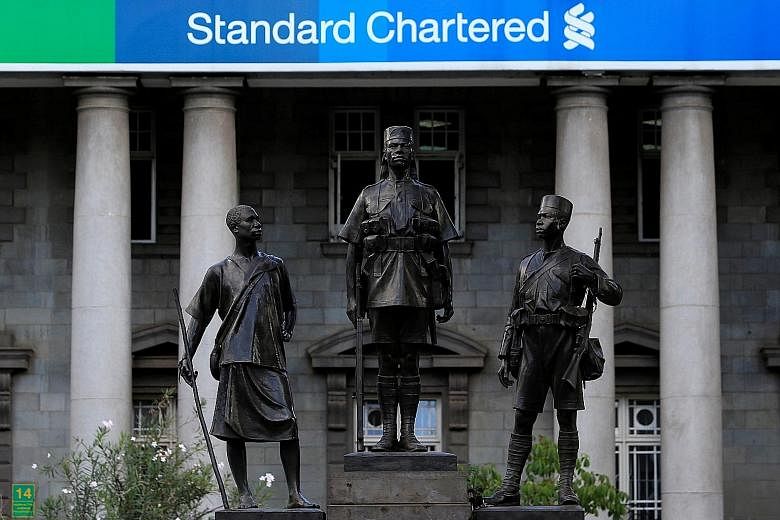Standard Chartered (StanChart) bank is investing US$100 million (S$135 million) over the next five years to revamp its global banking system so that it can better cater to the increasingly complex needs of clients who operate across the world.
The bank, which is focused on Asia, Africa and the Middle East, said in a statement yesterday that it aims to offer innovative products and services that will suit clients' "ecosystems" - their domestic and international network of suppliers, distributors and customers.
As part of the new strategy, it has invested in a blockchain, or distributed ledger, technology. Blockchain technology has been touted as a game changer for trade finance. It is a digital system that will eliminate the paper-based system that dominates trade finance today, which, in turn, will cut costs and the potential for fraud.
StanChart said it is also exploring the use of data analytics to gain better insights into its clients.
The idea, said head of transaction banking Alex Manson, is to "create a new generation of banking solutions that integrate financial, informational and physical flows within clients' ecosystems". These solutions range from "plain vanilla cash, trade and foreign exchange to complex supply chain and structured financing solutions".
The bank also released a white paper yesterday on how corporate supply chains are changing and how banks can best support their clients in this new environment.
For example, the report noted that as corporations source directly from suppliers rather than through intermediaries, their payment requirements become more complex.
Companies may need to shorten payment terms to small suppliers, for whom supplier financing programmes are less likely to be accessible, and explore a variety of payment methods, including payments to unbanked producers. So, their banks must ensure efficient and convenient payment methods across sales channels. This could mean offering innovative payment methods that are appropriate to each market, such as mobile wallets and prepaid cards, as well as efficient cash and cheque processing.
Another tip: Offer tailor-made financing tools that facilitate the client's growth, rather than simply accelerate the payment of purchase orders or invoices.
"In recent years, a large number of third-party bank-agnostic financing platforms have emerged, but these platforms are not designed to deliver clients' bespoke financing requirements," the report noted.
"Consequently, banks need to take a more innovative approach to financing, including pre-shipment, post-shipment, post-acceptance and distributor financing across tier one but also tier two suppliers and buyers of all sizes."
Banks also need to improve coordination across their operations. "One contributor noted that if they ask for a quote to take a customer exposure off the balance sheet, they may get two different prices from branches of the same bank," said the report.
Some companies said that they also hate having to spend weeks trying to find the appropriate banker to deal with in each country.


